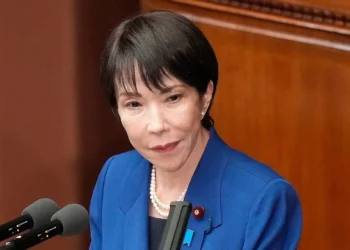Oil producing countries, although recently increased climate ambition and net-zero commitments still plan to more than double amount of energy from fossil fuels in 2030, than that required to limit global warming to 1.5 degree Celsius, according to UN Environment Programme (UNEP).
In the latest ‘Production Gap Report’, began two years ago, the UNEP measures the gap between governments’ planned production of coal, oil, and gas and production levels consistent with meeting the climate change targets.
“Over the next two decades, governments are projecting an increase in global oil and gas production, and only a modest decrease in coal production”, UNEP warned.
Executive Director of UNEP, Inger Andersen commented: “there is still time to limit long-term warming to 1.5°C [above pre-industrial levels], but this window of opportunity is rapidly closing.”
For the UN Climate Conference, COP26, slated for early November in Glasgow, “governments must step up, taking rapid and immediate steps to close the fossil fuel production gap and ensure a just and equitable transition.” Ms. Andersen said. “This is what climate ambition looks like”, she stressed.
The report provides country profiles for 15 major producer nations: Australia, Brazil, Canada, China, Germany, India, Indonesia, Mexico, Norway, Russia, Saudi Arabia, South Africa, the UAE, the UK and the US.
Commenting on the report, the UN Secretary General emphasized the recent announcements by the world’s largest economies to end financing of coal, calling them “a much-needed step” in phasing out fossil fuels.
A long way to go to a clean energy future
Given the findings of the report, António Guterres, stressed that this is clear indication that “there is still a long way to go to a clean energy future.”
“It is urgent that all remaining public financiers as well as private finance, including commercial banks and asset managers, switch their funding from coal to renewables to promote full decarbonization of the power sector and access to renewable energy for all”.
António Guterres, UN Sec. General
The report revealed that since the beginning of the COVID-19 pandemic, countries have directed over US$300 billion in new funds towards fossil fuel activities. This amount is more than what was committed to clean energy.
Delving into country actions captured in the report, only the UK and Indonesia are forecast to produce less oil and gas in 2030 compared with 2019.
Meanwhile, Antonio Gueterres urged public financiers as well as private finance to “switch their funding from coal to renewables to promote full decarbonisation of the power sector and access to renewable energy for all.”
Mans Nilsson, executive director at Stockholm Environment institute (SEI) scientist underscored that: “fossil-fuel producing nations must recognise their role and responsibility in closing the production gap and steering us towards a safe climate future.
“Global coal, oil, and gas production must start declining immediately and steeply to be consistent with limiting long-term warming to 1.5 degrees Celsius,” said Ploy Achakulwisut, a lead author on the report and SEI scientist.
READ ALSO: Ghana: Gold Producers to finish 2021 with 6% average output growth- Fitch Solutions























